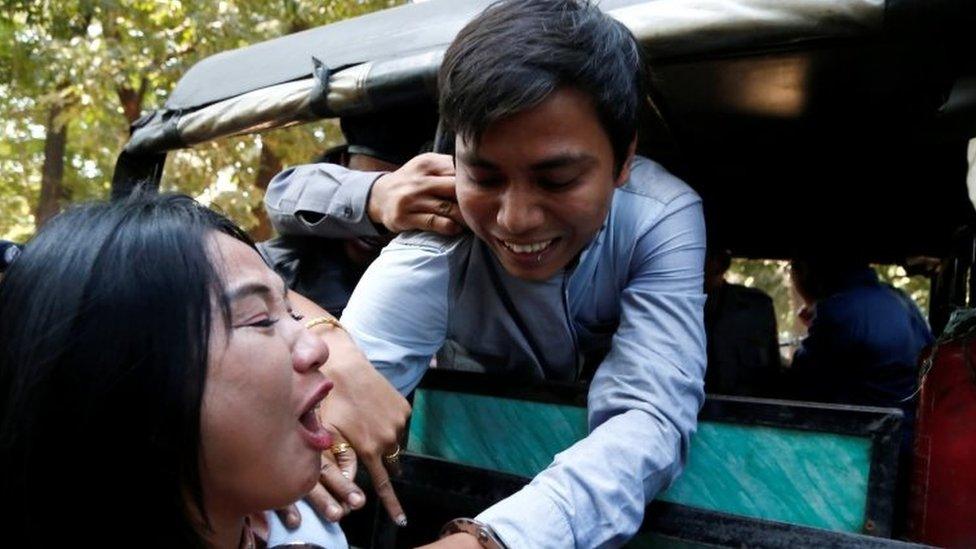Reuters journalists charged under secrets act in Myanmar
- Published

There were emotional scenes outside the Yangon courthouse
Two Reuters journalists have been formally charged with offences under the Official Secrets Act in Myanmar.
Wa Lone and Kyaw Soe Oo were arrested on 12 December after meeting police. They face up to 14 years in prison.
They were covering the situation in Rakhine state where more than 665,000 Muslims have fled a deadly military crackdown, according to the UN.
Reuters says the journalists did nothing wrong. Rights groups have called for their immediate release.
In a statement, e
The Official Secrets Act was introduced under British colonial rule. According to Reuters, prosecutions under it have been rare.
The two journalists were detained after meeting police officers offering them information. For the first two weeks they were held without access to lawyers or family.
The government had previously cited police as saying they were "arrested for possessing important and secret government documents related to Rakhine State and security forces".
It said they had "illegally acquired information with the intention to share it with foreign media".
'Trying to be strong'
On 27 December, the journalists appeared in court for a first hearing after which they were remanded for another two weeks.
On Wednesday, they appeared at a Yangon court and the charges were filed.
"We will face the charges filed against us," Wa Lone, 31, told reporters. After the 30-minute hearing, he and Kyaw Soe Oo, 27, were taken back to Insein prison.
There were emotional scenes outside the courthouse where the journalists family members were gathered, AFP news agency reported.
Wa Lone shouted to reporters that he was "trying to be strong".
The pair are due back in court on 23 January.
Myanmar (formerly known as Burma) has seen increasing curbs on press freedom, especially on issues around the powerful military and the conflict in Rakhine state.
The military says it is fighting Rohingya militants in Rakhine, but rights groups say thousands of civilians have been killed.
After an internal investigation, in November the army exonerated itself of any blame regarding the crisis. It put the death toll at about 400.
Access to Rakhine has been tightly controlled by the military with journalists not allowed to report from there.
- Published13 December 2017
- Published18 December 2017
- Published11 September 2017